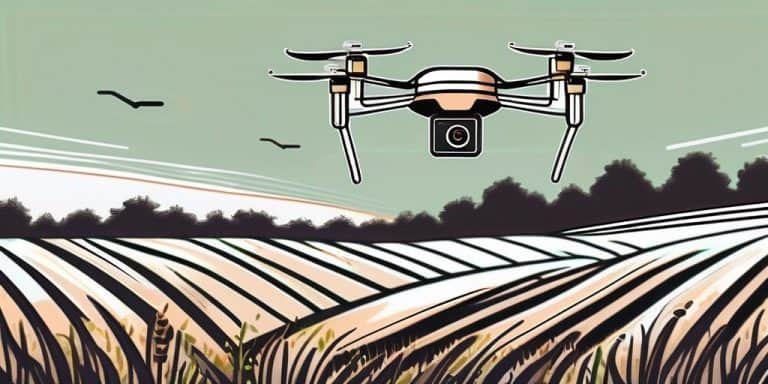
Examples of Speech Synthesis in the Legal System
Discover how speech synthesis technology is revolutionizing the legal system with real-world examples.

Sales Development Representatives (SDRs) and Business Development Representatives (BDRs) are two distinct roles within the sales process. SDRs focus on developing relationships and proactively generating leads for the business, while BDRs specialize in qualifying those leads, understanding their needs, and converting them into customers.
In this article, we will explore the differences between SDRs and BDRs.
A Sales Development Representative (SDR) is a representative who is responsible for exceeding the potential customers to get a good lead.
A sales development rep (SDR) does not focus solely on closing a deal, but must first and foremost contact the potential customer and see if they are fit for the company. SDR is used to sell leads. Communicate with prospects and learn what is needed. Sales Development reps plan the next steps for each customer with an SDR.
The requirements for a sales development rep (SDR) vary by company, but most require a bachelor’s, master’s, or another related field. It could be incredibly helpful for an aspiring sales rep.
The client must have an understanding of the work they are creating and have the ability to work independently. The project requires minimal supervision. It is essential for data scientists to be well-prepared for data analysis in a fast-paced data environment.
Sales Development Representatives must have an understanding of the complex process of customer acquisition and develop solutions to the challenges they face in work and life. Sales development reps have a very different work environment in which they must use the latest technologies and strategies.
An SDR can learn from their experiences and pass those lessons on to other SDRs. SDRs must also have a basic understanding of data security to ensure the security of the business. SDRs must also help implement customer acquisition and retention initiatives.
Sales Reps are essential to companies as they generate qualified prospects and qualify them to determine if they meet the company’s needs. Leads are evaluated to determine if a person is interested in the company’s offering. The sales representative rep closes the sale by interviewing prospects to provide them with information.
SDRs must also assist with customer acquisition and retention. SDRs must be organized, efficient multi-taskers who can identify leads, track progress, and manage multiple communication channels.
Business Development Reps (BDRs) focus on building customer relationships for the purpose of long-term growth and expansion. BDRs are responsible for developing new business opportunities, growing existing relationships, and generating revenue for their company. They must be experts in communication and know how to close sales.
What is the purpose of a BDR? They are responsible for creating leads. The business development representative is responsible for usually looking for business opportunities in the store, evaluating whether they can find customers, and arousing interest in business opportunities. It is an artistic place.
Every day a BDR focuses on analyzing new ideas to develop leads. Leads can be sourced from anything a company representative can think of. Developing relationships with prospects is key.
Like sales reps, many business development reps (BDRs) must hold bachelor’s degrees or equivalent.
The majority of business development reps (BDRs) hold degrees in business and marketing & labor independently. They must learn the skills to build relationships. A BDR is expected to have two years of previous cold calling and qualifying leads to experience. Excellent communication skills are also needed as BDRs use this during presentations to convince people that they need the best. It was noted that they should work autonomously with minimal supervision and should have strong analytical skills.
A business development agent can help generate leads or identify potential customers.
The company uses various approaches to locate prospects such as social selling, networking events, trade shows, cold emails, and cold calls. Once a prospect is identified, a company contacts them and tries to convert them into buying its products. In addition, the Manager of Business Development will maintain relationships and support existing customers as needed. BDRs handle leads to neglect and monitor sales processes in detail to ensure it is done.
Business development is typically more aggressive than sales development. Cold calling is the most common method of contacting prospects. They usually have a structured pipeline and do not have automated content like sales development does. The initial customer interaction is critical to a successful BDR.
The business development representative (BDR) typically makes a longer effort to contact potential customers and get responses than sales development representatives (SDRs) receive. BDR can leverage Twitter or Facebook in their mobile applications.
This will increase your lead generation in the business development representative (BDR). Connecting with potential business partners is critical to building trust and creating stronger foundations for future relationships.
An SDR and BDR generate new leads and identify those that fit the business. All two partners work closely together in sales. They also use effective communication methods to prospect cold calls or sell products.
They must also have excellent customer service skills and an extremely thorough detailed knowledge of the company.
So, what’s the difference between SDR and BDR? The word Business Development Representative (BDR) or the Sales Development Representative (SDR) is used in different ways. Generally, both BDR and SDR refer to the role of the salesperson, so this is just for consistency. SDR reports are often forwarded to marketing, but not to sales.
The primary goal lead generation of sales rep, is to achieve the goal of closing the deal. The sales team begins to identify inbound prospects and moves those prospects through the initial sales stages to qualify as opportunities to pitch to AEs.
Business development reps also generate leads, but focus on creating potential opportunities within their region than pitching them to AEs. An SDR needs to identify new leads and generate new ones.
SDR is responsible for inbound leads and a BDR focuses on outbound lead management. Inbound lead generation occurs because of a marketing effort such as website visitors filling out forms or converting through an ad. Outbound leads are generated by sales leads generated by prospecting calls.
SDRs focus on selling products or services to attract potential customers, while a BDR (business development rep) focuses on building and maintaining relationships with ideal customers. Both skills are important, although they are different.
The sales team is responsible for closing – immediate sales and converting leads, while the business development team is more focused on building the foundation for a longer-term relationship with potential customers.
The sales executives and the entire sales team are responsible for tracking and understanding the customer’s needs and providing solutions to those needs that lead to a sale. SDRs are responsible for qualifying potential leads and turning them into loyal customers.
Ultimately, both BDRs and SDRs bring qualified prospects into the sales funnel, but neither is responsible for closing deals. Each role has a different focus within the pipeline; BDRs and SDRs are compensated based on their respective Sales Qualified Appointments (SQAs).
The positions listed above are primarily junior positions. Some people who were in this position just started their first sales jobs and they might not have a clear idea of what they want as a sales representative or sales developer.
To be a successful SDR or BDR, you need to have certain qualities. SDRs need to know and follow procedures to qualify leads and convert them into customers.
In addition, SDRs should have a strong understanding of cold and warm writing techniques to reach potential customers. SDRs must also have a strong understanding of the needs of the business to create appropriate campaigns and build strong customer loyalty.
SDR is sales development representative and BDR means business development representative. SDRs are there to qualify leads and prepare high-value sales.
A Business Development Representative is there to find new customers and build a strong relationships. These SDRs specialize in developing lead-generation strategies to acquire new customers.
Designations and roles in a sales team can be confusing, but it’s important to understand the difference between an SDR and a BDR. Both play an important role in achieving sales goals, but they approach their tasks differently.
As a Business Development Representative, you should focus on what makes you unique and use that to your advantage when building relationships with prospects.



Discover how speech synthesis technology is revolutionizing the legal system with real-world examples.

Explore how speech synthesis technology is revolutionizing the agricultural industry with real-world examples and applications.

Explore how speech synthesis technology is revolutionizing the manufacturing industry with real-world examples.
